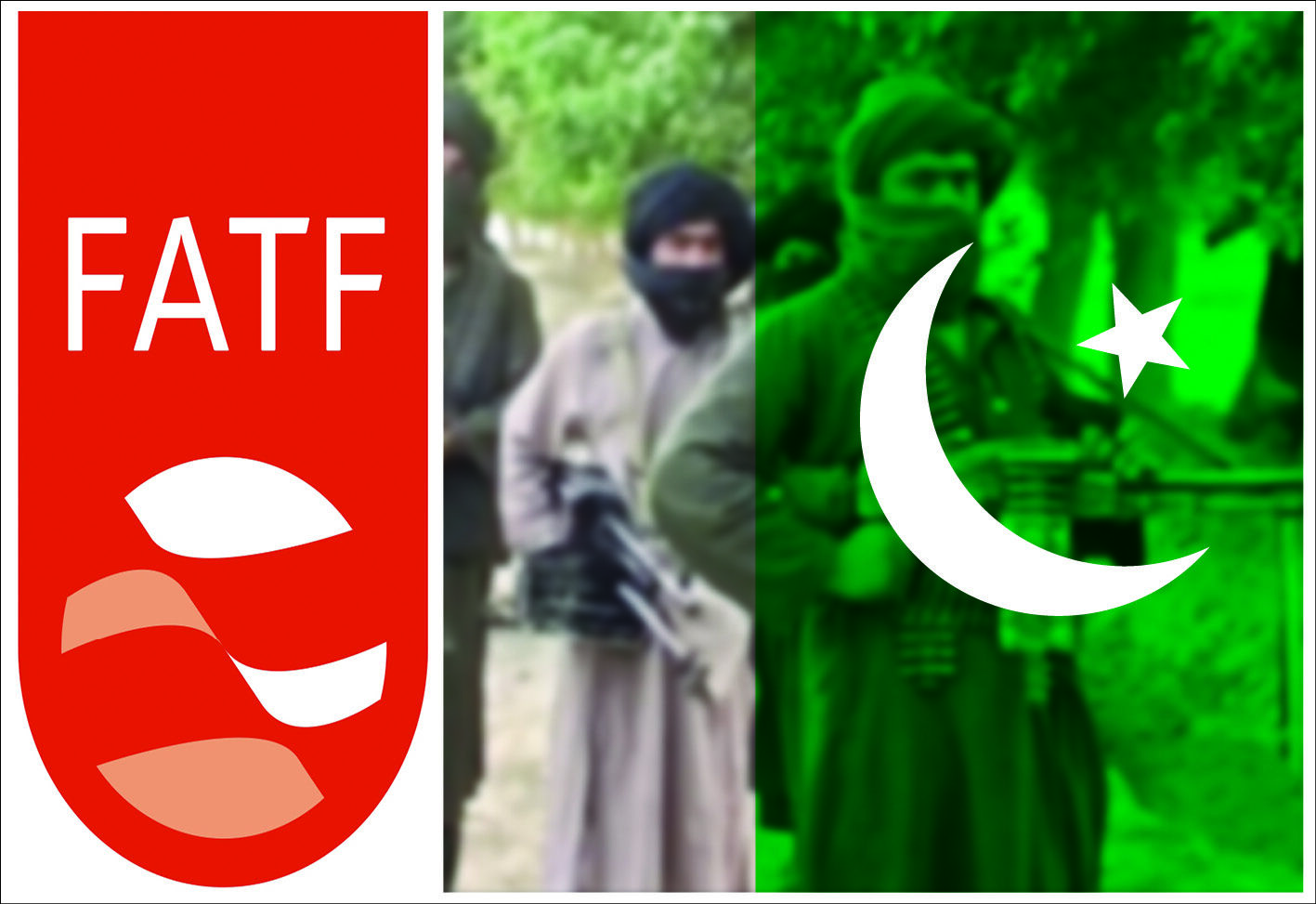Pakistan's FATF exit justified?
Pakistan’s government should continue plugging the gaps in the financial system and should not be complacent after getting off the hook from the FATF grey list

There was a sense of temporary euphoria in Pakistan earlier on October 21 when the news broke in that the Financial Action Task Force (FATF) has taken off Pakistan from the grey list of countries suspected of abetting terror financing and terror-linked activities. The euphoria is understandable as, after nearly four-and-a-half years of trials and ups and downs, Pakistan has finally exited the FATF's grey list of countries. A powerful section of the media described it as a 'victory' that ought to be celebrated as an example of what the country can achieve when the 'national leadership works together towards a common goal'. This statement, however, seems far-fetched and utopian.
If the exit had long been awaited, with the country hoping for a respite after each progress review held in the last couple of years, Islamabad had been prescribed two concurrent action plans by the FATF, which pursued compliance on a total of 34 action points. Heaving a sigh of relief, terror supporters' elitists in Pakistan claim that it was no mean feat that the country came through on them all, even though it seemed at times that the goalposts were alleged to have been shifted to put it at a disadvantage. This is again far-fetched and wishful thinking.
A FATF team had, towards the end of August this year, verified Pakistan's progress on reforming its anti-money laundering regime and the measures taken to block terrorism financing and found them to be "satisfactory".
It is relevant to mention that as a result of sustained pressure from the international watchdog, Pakistani authorities worked hard to overhaul the regulation of the domestic financial system to enhance monitoring of who has been using it and how. This not just helped satisfy the FATF's conditions, but it has also made it much more difficult for nefarious elements to use the system to launder black funds or move them around. Oversight of the various channels of the financial system is expected to strengthen the state's hand as it targets criminal activities and the proceeds of their crimes. This looks ad hoc unless Pakistan really labours to maintain its diligence, it might come back to the grey list once again and that too not in the distant future.
Meanwhile, experts feel how to go about it is entirely up to Pakistan. So far, the authorities have been acting on a prescription handed to them by the FATF, but they should take the cue and continue strengthening the Pakistani financial system. Nobody understands its deficiencies better than the people who operate within it. They should use those insights to plug any remaining gaps and make sure no vulnerabilities are remaining that may be exploited. Any complicity with terror groups must be shunned.
During the recent plenary session on October 20-21, FATF reviewed the record of about 26 countries and agreed unanimously to take Pakistan and Nicaragua off the 'grey list', add The Democratic Republic of Congo, Mozambique and Tanzania to the 'grey list', while moving Myanmar from the list to the black list for actions taken by the military junta since the overthrew the government in a coup last February.
Deliberations of the FATA are made in complete secrecy, and decisions are made based on technicalities and procedures, so the grey listing of Pakistan has to be seen in the totality of the process. Pakistan was also on the 'grey list' from 2012-2015 when FATF mandated many steps. Since 2018, it has been handed two action plans, comprising 34 points (27+7), asking Islamabad to bring in laws on money laundering, and anti-terror laws in line with international requirements. Pakistan also had to maintain a proper database of active terror groups and the actions taken against them. Crucially, it failed to monitor the activities of terror groups like Al-Qaeda, the Taliban, and Jaish-e-Mohammad which operated quite freely, and designated terrorists like Hafiz Saeed and Masood Azhar addressed public rallies and even took part in political activities.
Judging by these trends, Pakistan getting off the hook from the FATF grey list calls for no complacency. Pakistan's record of abetting cross-border terror with the connivance of the Deep State must be closely monitored. What happened recently in Nairobi when a Pakistani journalist Arshad Sharif was shot dead for 'mistaken identity' by the Kenyan police, calls for a deeper probe into whether there was any terror linked to the killing and if affirmative, was there any military or extra-constitutional complicity? Such findings will help restore the confidence of the watchdogs to ascertain if Pakistan is really divorced from terror groups as a State, or if it is still a misnomer.
The writer is a retired IPS officer, a security analyst and a former National Security Advisor to the Prime Minister of Mauritius. Views expressed are personal



